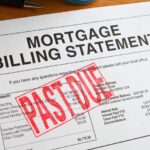Foreclosure FAQs
Q: Can a home be sold for less than its mortgage?
A: Short answer is sometimes. But it is a complicated process and a lot will depend on the lender. This process is called a “short sale,” which occurs when a lender agrees to write off the portion of a mortgage that’s higher than the value of a home. But, usually, a buyer must be willing to purchase the property first.
A short sale may be more complicated if the loan has been sold in the secondary market.
Then the lender will need permission from Freddie Mac or Fannie Mae, the two major secondary-market players.
If the loan was a low down payment mortgage with private mortgage insurance, the lender also will need to involve the mortgage insurance company that insured the low down payment loan.
The short sale can keep the homeowner from landing in bankruptcy or foreclosure. But it is not an easy procedure to approve, and it involves as much, if not more, paperwork than an original mortgage application.
Instead of proving your credit worthiness and financial stability, you must prove your financial difficulties. And any remaining difference between your home’s value and the balance on your mortgage is considered a forgiveness of debt, which usually means it is taxable income.
Q: How long do bankruptcies and foreclosures stay on a credit report?
A: They can remain on your credit record for 7 to 10 years.
However, a borrower who has worked hard to reestablish good credit may be shown some leniency by the lender. And the circumstances surrounding the bankruptcy may also influence a lender’s decision. For example, if you went bankrupt because you were laid off from your job, the lender may be more sympathetic. If, however, you went through bankruptcy because you overextended personal credit lines and lived beyond your means, it is unlikely the lender will readily give you a break
Q: If faced with foreclosure, what are my options?
A: Talk with your lender immediately. The lender may be able to arrange a repayment plan or the temporary reduction or suspension of your payment, particularly if your income has dropped substantially or expenses have shot up beyond your control. You also may be able to refinance the debt or extend the term of your mortgage loan. In almost every case, you will likely be able to work out some kind of deal that will avert foreclosure.
If you have mortgage insurance, the insurer may also be interested in helping you. The company can temporarily pay the mortgage until you get back on your feet and are able to repay their “loan.”
If your money problems are long term, the lender may suggest that you sell the property, which will allow you to avoid foreclosure and protect your credit record.
As a last resort, you could consider a deed-in-lieu of foreclosure. This is where you voluntarily “give back” your property to the lender. While this will not save your house, it is not as damaging to your credit rating as a foreclosure. Exhaust all other viable options before making a decision. We at Align Realty have helped numerous people facing foreclosure sell their home fast and walk with cash in their pockets. If you are in a situation where you are about to have the bank foreclosure on your property, give us a call at 443-440-1511 or fill out our form to see how we can also help you put these trying times behind you.
Q: What type of foreclosures are there?
A: There are two types – judicial and non-judicial. A foreclosure that results from a court action is a judicial foreclosure. The mortgage deed or trust does not have a power of sale clause, therefore the lender, trustee or another lienholder must take the borrower to court to recover the unpaid balance of a delinquent debt. By contrast, a non-judicial foreclosure is one in which a foreclosure can be completed outside the court system. Real property can be sold under a power of sale in a mortgage deed or trust that is in default, but the lender is unable to obtain a deficiency judgment.







